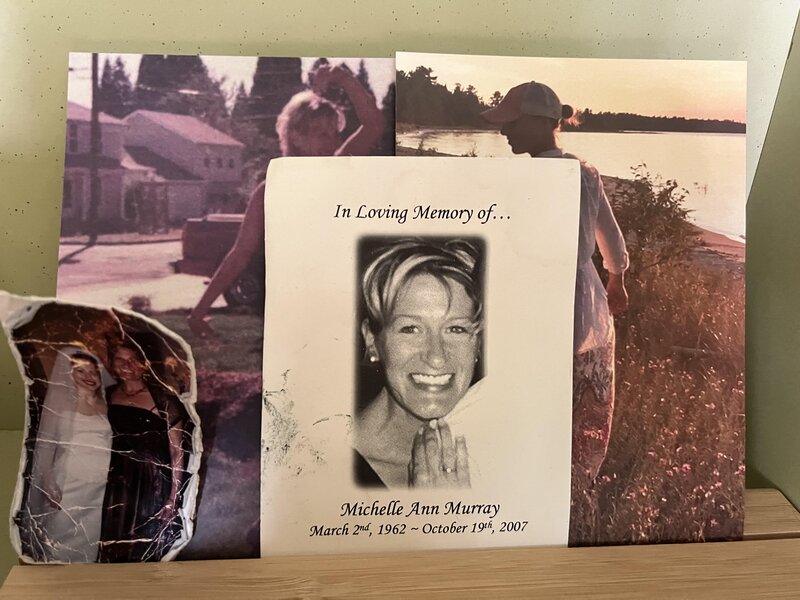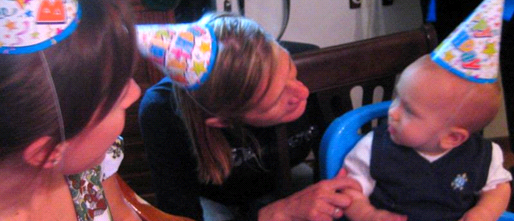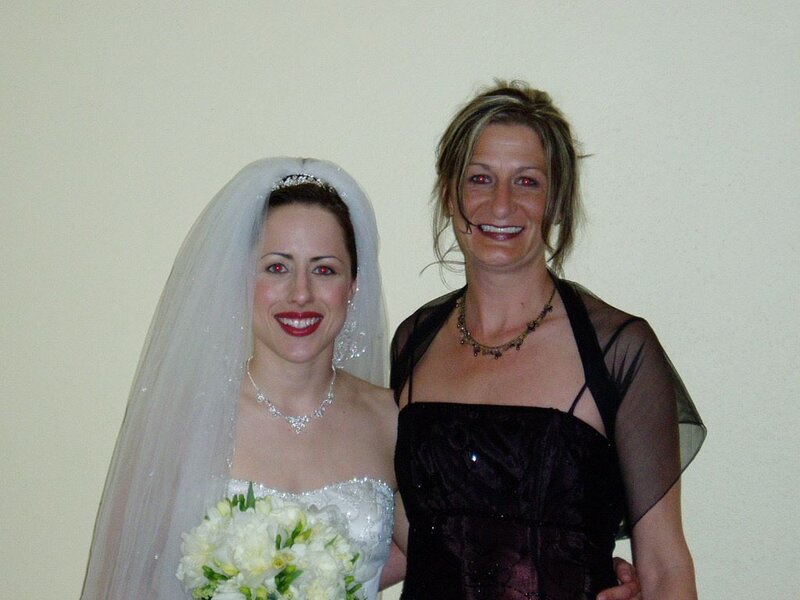At Emergent, our mission is to protect and enhance lives by increasing access to potentially lifesaving products. When we acquired the opioid overdose reversal medication NARCAN® Nasal Spray in 2018, we understood that it would put us in the middle of one of America’s most complex, fraught public health challenges. Rather than shy away from this complex topic, we’ve chosen to face it head-on by actively supporting policies and programs that make naloxone products more accessible as other similar lifesaving devices, improving education and awareness, and working to destigmatize opioid/substance use, or accidental overdose, so that those who need help can ask for it – and get it. That’s why we’ve worked to bring NARCAN® Nasal Spray over the counter, which is now available on store shelves and online.
Amanda Lick is an Emergent employee, and we are proud that she has agreed to share her story with us. By talking about her personal and lived experiences, she’s helping to create an environment where those who are suffering can ask for support and, if needed, be prepared with NARCAN® Nasal Spray in case of an opioid overdose emergency. Use as directed.
Every seven minutes an American dies from an opioid overdose, which equates to 82,463 lives lost in 2022 to an epidemic with no end in sight. I have seen the devastation everywhere, across every race, socioeconomic status, and in the corners of every county and every region of the country. No one person, family, or community is immune from the risk of an overdose — and with each loved one lost, a family is impacted. And those losses of which are felt across generations. In 2007, that was my mom and our family.
My mom was gifted with an incandescent personality and an indomitable spirit — a single, teenage mother who carved her own path to become a successful entrepreneur. Growing up, she wasn’t like everyone else’s mom, and while at times it was difficult, I grew to love her for it. I vividly remember her blasting music in the car with the windows rolled down, singing her favorite songs loudly with the wind in our hair. She said yes to me, driving her car up to Mt. Hood without snow tires to skip school, and ride the fresh powder snow that fell the night before. She always sought to live life to the fullest and encouraged me to do that as well. We were close in so many ways, having experienced many of life’s tough lessons together at a young age. She always used to say, “It’s just you and me, kid.”


I believe families like mine just want one more chance, one more hug, one more talk, one more opportunity for a turning point with their loved ones who live with opioid use disorder in an opioid overdose.
I was in elementary school when mom had her first overdose. Her addiction started in the early 80s after a series of accidents that caused her to have emotional and physical pain. Each time she overdosed, it simultaneously made me feel “not again,” and yet it became part of her invincibility, which made me think she would be here forever. She had already survived so much. As the years went by and I moved away, she would pass out on phone calls. It became normal for her, and me. Eventually, I hung up, knowing she would call me back when she woke up. At some point, she stopped calling.

As a child living with a parent who used substances and was struggling, I lived in a constant state of fear. Fear of the last conversation, fear of what will happen next, fear of who knows. It is never ending. I would silently plead that she wouldn’t have access to anymore pills. I was a desperate kid, just wanting my mom to survive.
My mom’s struggle with substances reached the point where I had to make an ultimatum. I had a one-year-old son and a daughter on the way. I could no longer stay silent, it was hurting me, and our family. I told her what I had been afraid to tell her my whole life. I was afraid to admit that I was scared that she would die, but if I was going to stop the cycle, I would do it for my children. They became the only thing more important than my mother’s substance use and its impact on me. One day, I faced my fear. I shared how much I loved her, how magical she was to me, and how desperate I was to get her help, even if that meant we wouldn’t speak until she did. She deserved better. We all did. Part of me worried that would be our last phone call — that part of me was right. A few months later, a terrible storm came through our community. I thought about calling my mom to check on her, but I stuck to my convictions. That was the night she died.
Just like that, I was motherless while raising a baby on the outside and growing a baby on the inside, I processed all of this grief. At times, it was unbearable. I felt trapped and alone, even though I was never alone. I missed her energy and her presence. And somewhere within the depth of my grief, I found a little bit of mom’s grit to help me take a bold step forward. I stopped working on my teaching degree and turned my career goals towards getting a master’s degree in health and risk communication, where I focused all my efforts on understanding how to decrease overdose deaths through improved communication between pharmacists and patients. I went to work for the Michigan Pharmacists Association, leading advocacy efforts focused on patient safety and health policy. I learned in this work, that stories matter, speaking up matters.
After years of working for non-profits in government affairs, I wanted to apply myself in a different way. On LinkedIn, I saw Emergent was searching for candidates to support their naloxone product, NARCAN® Nasal Spray. I also knew of their commitment to help save lives, but I wasn’t sure if my family background would rule me out in some way. But in the interview, I was told, “Please tell your story. It’s so important to us.”
Working for Emergent, I meet with officials from six different states. I’m able to have data-driven conversations that focus on how to address challenges, clear hurdles for people most at risk of overdose, improve access to naloxone, and make a difference in this ongoing crisis. No family should feel the ripple effect of losing someone they love to an overdose. And with the building of programs that reach people who may need naloxone, I feel like I am carrying the importance of having conversations that make a big impact, a potentially a life-saving impact.
I believe families like mine just want one more chance, one more hug, one more talk, one more opportunity for a turning point with their loved ones who live with opioid use disorder in an opioid overdose, minutes matter. NARCAN® Nasal Spray is easy to administer, so that any parent or any child can step in to save a life. Now available over the counter, it’s more broadly accessible, making it possible for more people to give and even get that one more chance. I wish NARCAN® Nasal Spray was around when my mom was struggling. It could have made a difference.
Not long ago, I came to work on the day of my mom’s birthday. I received a phone call from someone who I had helped start a naloxone program for women in recovery. During the call, it was shared that someone’s life was saved that day from an opioid overdose. The ripple felt that day was of hope, not loss. And that’s one more way I know that my mom remains present in my life and in my work every day. With each customer I work with, I am able to share the passion I have for individuals, families and communities that are struggling. Naloxone access programs are a way to not stay silent, they give us the opportunity to meet people where they are, give families hope, and invest in a community that needs it.
In an overdose situation, people cannot give themselves naloxone. Just like in a cardiac arrest, someone can’t give themselves chest compressions. I know that there may be millions of other family members who feel like I do. It is incredibly sad to me that I am not alone. Communication is key to helping end opioid overdose deaths. Please don’t stay silent. Communicate that you carry NARCAN® Nasal Spray. Have a conversation with the person you love that you have been putting off and encourage them to do the same. This is a conversation we should be having at every level. Nationally, locally, and within our homes, with anyone we love. Grandparents talk to your grandchildren, kids talk to your parents, parents talk to your kids, siblings and best friends talk to each other. Don’t wait until tomorrow, do it today. This is how we fight this – by meeting people where they are with unification and love. That’s what my mom would want me to tell you if she were alive today.